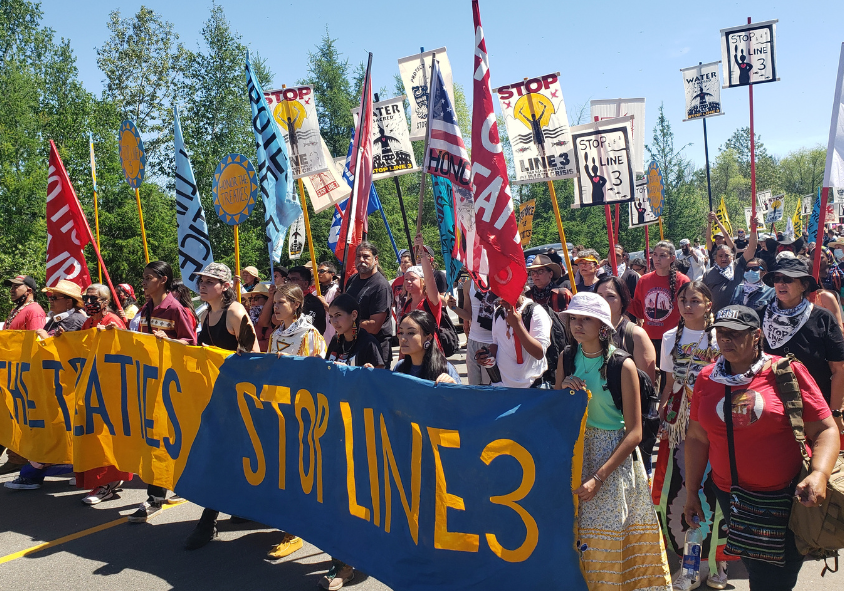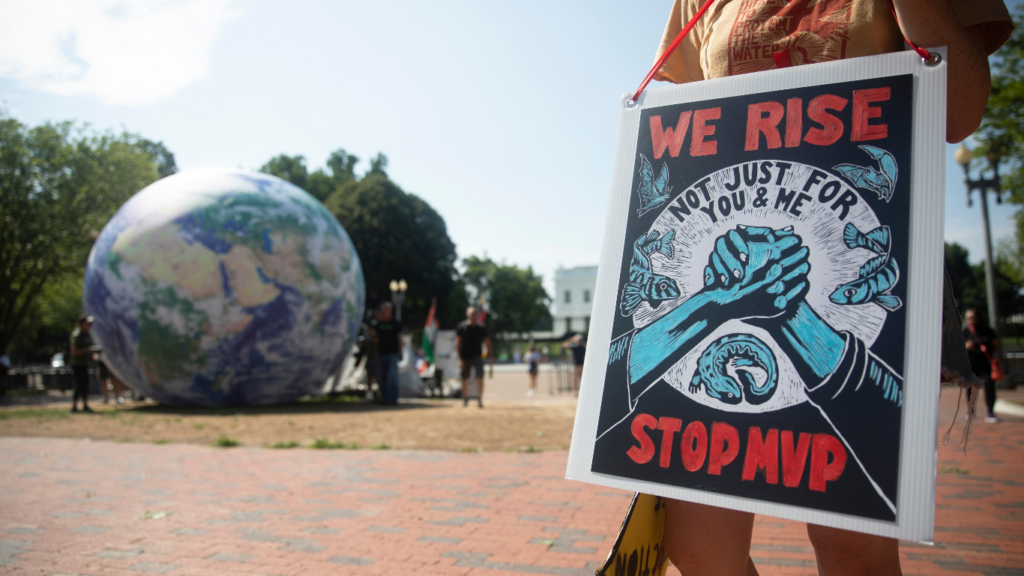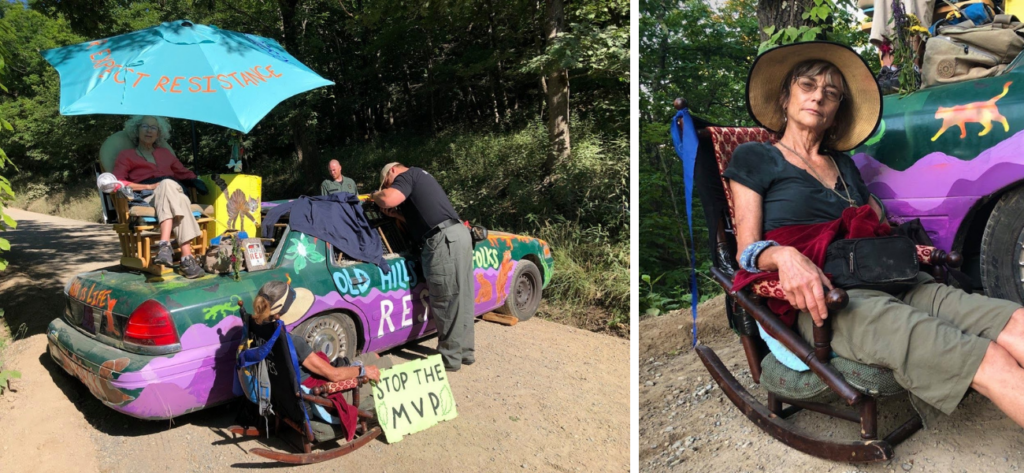“To criminalize their behavior would be a crime.”
– Judge Metzen
In a recent court order dismissing misdemeanor criminal charges against Indigenous water protectors Winona LaDuke, Tania Aubad, and Dawn Goodwin, Minnesota Judge Leslie Metzen decried the use of the courts to persecute free speech and expression of religion. LaDuke, Aubad, and Goodwin led resistance to the Line 3 pipeline and faced criminal charges for a particular action at a pipeline construction site and on treaty lands.
Resistance to Line 3

The judge’s statement stands out. It’s one of the only memos from a judge on a Line 3 case that recognizes the necessity for resisting new pipeline infrastructure. Line 3 is a tar sands pipeline, extending 338 miles through Northern Minnesota and carrying an estimated 760,000 barrels of tar sands oil each day through 227 lakes and rivers (including the Mississippi River), and over 800 protected wetlands and ceded lands. In 2021, years-long resistance to the pipeline culminated in on-the-ground civil disobedience and direct action to block construction, resulting in over 900 arrests.
At best, the state showed hostility to the people protesting the pipeline. The state of Minnesota and the pipeline company Enbridge worked together to quell resistance. Enbridge paid into an escrow account set up to fund the policing of pipeline protests, which galvanized the state to protect a pipeline instead of the people they’re meant to safeguard.
In a country that has consistently disrespected treaty obligations and Indigenous land rights, a judge condemning the prosecution of water protectors is astonishing. Those who protest pipelines nationwide often face judicial harassment from pipeline companies and the state.
The story repeats at MVP

The playbook–protect corporations, punish water protectors–shows up at the Mountain Valley Pipeline, a gas pipeline currently in construction crossing through West Virginia and Virginia. This project was supposed to be finished in 2018. It’s 2023, construction is ongoing, the budget has more than doubled, and any potential benefits for its completion would be severely outweighed by the costs to the land, water, and communities along the route.
The resistance to the pipeline ramped up after the federal debt ceiling deal sold out any solidarity with communities along the route and future generations who will experience the climate consequences of building new pipeline infrastructure in 2023. For years, direct action physically stopping construction and legal challenges to the pipeline worked in coordination. In turn, construction on the pipeline lagged while courts debated the legality of building infrastructure that locks us into environmental degradation for decades to come. Now, the federal government has undermined the ability to challenge the pipeline permits in courts.
EarthRights challenges abusive lawsuits.
EarthRights joined a case this year to stop an abusive lawsuit against people protesting the MVP pipeline. Three people, deemed the “Old Folks,” locked themselves down to a car that blocked an access road. After they were arrested, charged, and paid a substantial fine for this nonviolent civil disobedience action, Roanoke County sued them for an additional $13,000. This lawsuit from the County claimed that protesters should be responsible for costs incurred by the County during their action. Discovery later revealed that County officials had created a “wish list” of items that they hoped to buy with the $13,000.

In a small victory against abusive lawsuits, the County and the Old Folks settled for much less than $13,000. The three who took action to prevent construction agreed to pay just over $500 for the costs of towing the car used to blockade the road. When the suit was settled, the company behind MVP paid the difference to the County. This is reminiscent of the financial relationship between Minnesota and Enbridge at Line 3.
Defining justice
So rarely does the legal system deliver justice for Indigenous and frontline communities. What is justice for Indigenous peoples when corporate oil and gas projects are valued over treaty rights? What is justice when the ability to challenge pipeline permits in court is sold out by the federal government to pass a debt ceiling bill? What is justice for the younger generations who will live with the climate consequences of infrastructure that locks us into fossil fuels for decades?
Justice would be decommissioning Line 3 and stopping the completion of MVP.
Courage is continued resistance in the face of escalating state and corporate repression. Hope looks like a judge recognizing the necessity of fossil fuel resistance.
Line 3 is in the ground, but our fight is far from over. There’s still time to stop Mountain Valley Pipeline construction and protect the water, land, air, and communities, both present and future, from the consequences of this dirty project.
EarthRights is hosting the MVP Legal Defense Fund. This fund supports the legal costs for MVP protesters facing civil suits by the MVP company or criminal prosecution.
EarthRights works to protect human and environmental rights. You can support our work worldwide here.






